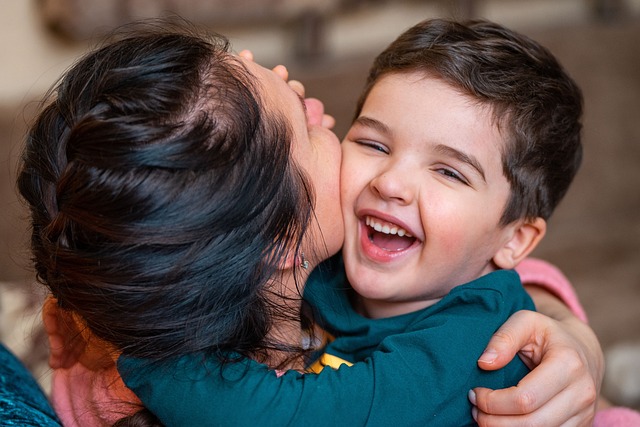Positive parenting plays a critical role in promoting children’s mental health and fostering emotional, psychological, and social well-being. By creating a supportive and loving environment, parents can help their children navigate challenges while building resilience, self-esteem, and emotional regulation.

Understanding the Role of Positive Parenting
Positive parenting is about guiding children with empathy, respect, and understanding rather than through strict discipline or authoritarian measures. It involves providing consistent love, setting clear boundaries, and encouraging open communication. This approach fosters a sense of security, which is essential for a child’s mental health. Children who grow up in environments that encourage emotional expression and understanding tend to develop better coping mechanisms when faced with stress, anxiety, or adversity.
Building Emotional Resilience
One of the key aspects of positive parenting is helping children build emotional resilience. This involves teaching them how to recognize and manage their emotions effectively. For instance, when a child feels frustrated or overwhelmed, a parent practicing positive parenting can guide them in expressing those feelings in a healthy manner. Teaching emotional regulation helps prevent emotional outbursts, reduces stress, and fosters a more positive self-image.
Parents can also help children learn problem-solving skills and the importance of persistence in the face of challenges. Encouraging children to see mistakes as learning opportunities rather than failures helps build their self-confidence and resilience, contributing positively to their mental well-being.
Encouraging Open Communication
Positive parenting emphasizes the importance of maintaining open lines of communication. When children feel they can talk openly with their parents about their thoughts and feelings, it reduces the likelihood of bottling up emotions, which can lead to anxiety or depression. Active listening, validating a child’s emotions, and avoiding harsh criticism are all essential strategies in nurturing an environment where children feel understood and supported.
Encouraging conversations about mental health early on can help normalize discussions around emotions and feelings. This can lead to early identification of mental health issues and prompt intervention, which can significantly improve long-term outcomes for a child’s mental health.
Consistency and Boundaries

While positive parenting focuses on nurturing and supporting children, it also involves setting clear, consistent boundaries. Children need structure to feel secure. Boundaries help children understand expectations and the consequences of their actions, providing a framework within which they can safely explore their emotions and behaviors.
When parents enforce rules with love and patience, it teaches children accountability without fostering feelings of fear or guilt. This balance between affection and discipline promotes a healthy sense of responsibility and self-discipline, both of which are crucial for a child’s mental health and development.
The Importance of Parental Mental Health
It’s important to recognize that parental mental health plays a significant role in positive parenting. Parents who manage their stress, practice self-care, and seek support when needed are better equipped to provide the emotional support their children require. Children often mirror the behaviors they see in their parents, so a parent who models healthy emotional regulation is more likely to raise emotionally healthy children.
Positive Parenting and Mental Health Outcomes
Research consistently shows that children raised with positive parenting practices tend to have better mental health outcomes. They are more likely to experience higher levels of self-esteem, exhibit fewer behavioral problems, and display stronger social skills. Furthermore, positive parenting reduces the risk of children developing anxiety, depression, and other mental health disorders later in life.
Positive parenting also encourages children to develop a strong sense of empathy, enabling them to build healthy relationships with peers and adults. These social connections play an important role in emotional development and provide a strong support system for children as they grow.
Promoting Mental Health Awareness
Another key aspect of positive parenting is promoting mental health awareness. This involves educating children about the importance of mental well-being and encouraging them to prioritize their mental health just as much as their physical health. Parents can engage their children in discussions about the importance of mental health, teaching them to recognize the signs of stress, anxiety, and emotional distress, both in themselves and others.
Conclusion: Creating a Supportive Environment
Positive parenting is a powerful tool for nurturing a child’s mental health. By fostering an environment of love, respect, and open communication, parents can guide their children through the complexities of emotional growth, helping them build resilience and emotional intelligence. The benefits of positive parenting extend far beyond childhood, laying the foundation for a lifetime of mental well-being. In a world where mental health challenges are becoming more prevalent, positive parenting stands out as a crucial strategy for ensuring that children develop the emotional tools they need to thrive.
By prioritizing positive parenting, families can work together to create a supportive and nurturing environment that promotes long-term mental health and well-being.

